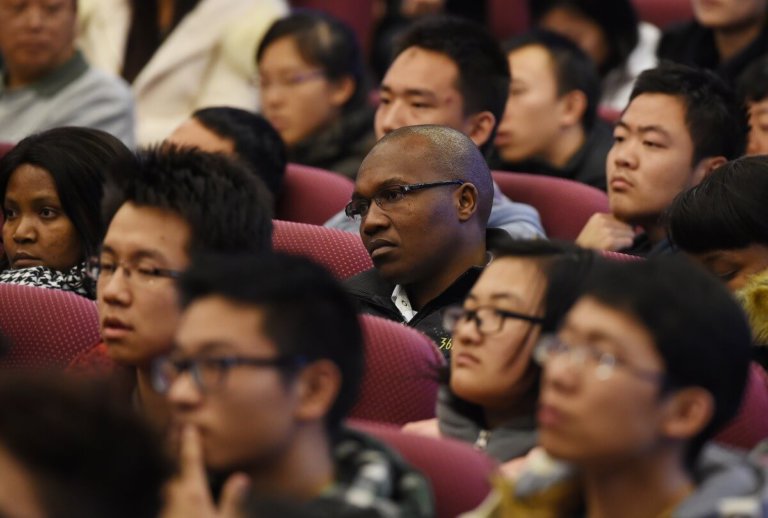
In 2018, the number of African students pursuing higher education in China reached an all-time high – 16 percent of all international students in the country came from Africa. There were 81,562 African students in China in 2018, compared to less than 2,000 in 2003.
New research finds that despite this growth, African graduates are alienated during their time in China as a result of racism.
Reporting his findings in the Higher Education Policy journal PhD candidate at the Education University of Hong Kong Benjamin Mulvey pointed out that the social alienation they experienced prevents African students from meaningful social interactions that can develop a sense of belonging.
Mulvey interviewed twelve Ugandan graduates of Chinese universities to gather insight on their experience.
One Master’s graduate said, “Outside the university, we had a kind of isolation. On the bus, if you are African, whoever is near you, they move away. They won’t even shake hands with you.”
China’s soft power move
In 2018, the Chinese government pledged to offer 50,000 scholarships to African students from the years 2018 to 2021. As a result, China now has the largest number of African international students in the world, more than traditional study abroad destinations like the US or UK.
According to Mulvey – who studies China’s attempts to reshape the global higher education field – China’s mass recruitment of talent from Africa is a diplomatic soft power push into the continent.

As part of its 2013 Belt Road Initiative, China is developing numerous infrastructure projects across Asia, Europe, Africa, the Middle East, and the Americas. Source: Shutterstock
For African students, education in China is attractive for the quality of its programmes and its relative affordability compared to the world’s other major education hubs. There is now an influx of scholarships and securing a study visa is easy.
Uganda, in particular, is a part of the Belt and Road initiative, which sees China spearhead several large-scale infrastructure projects that have created at least 18,000 job opportunities for African graduates – especially those familiar with China, its language, and work ethics.
Uganda is largely pro-China, with Chinese companies contributing most of the African nation’s foreign direct investment.
Where does diplomacy begin?
The racism experienced by African students in China is rooted in xenophobia, which seems at odds with the superpower’s attempt at cross-continent diplomacy.
In the words of one Ugandan graduate from a prestigious Beijing university, “There is racism in China… [it] is right there, but no one wants to talk about, nobody cares about it, everyone is just indifferent.”
Mulvey proposes that the link between studying abroad and soft power has been oversimplified in this case.
In his piece for The Diplomat, he writes, “How can it be expected that students who feel they are the victims of an overt anti-African racism, which remains largely undiscussed within Chinese society, would return to their home countries and spread positive messages about China?”
Liked this? Then you’ll love…
What China’s crackdown on academic freedom means for US universities







